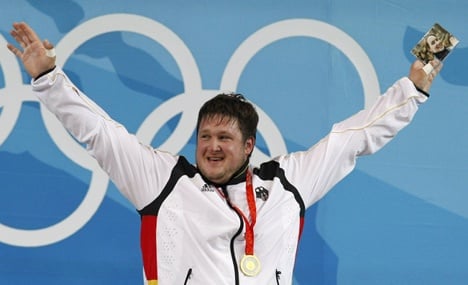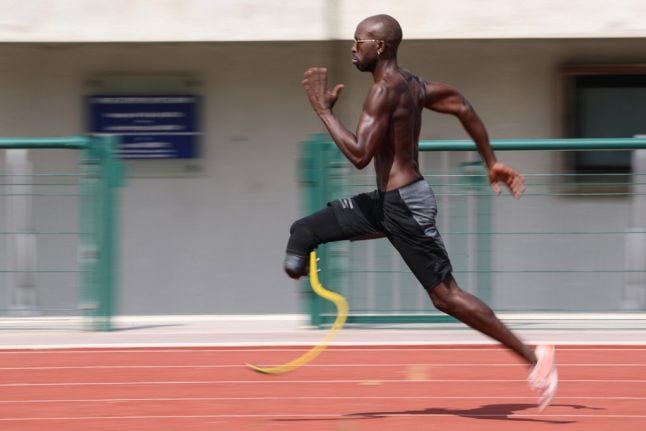Among Germany’s medal favourites this year is 29-year-old weightlifter Matthias Steiner, who won sympathy at the 2008 Beijing Summer Olympics by dedicating his gold medal to his wife who was killed in a car crash the previous year.
This year, Steiner again faces a tough challenge – he is recovering from a torn quadriceps tendon that forced him to miss a weightlifting World Cup competition in November. Yet the 140-kilogram lifter, who was born in Austria but took German citizenship, said he saw his aim to compete in London was “very realistic.”
“This is a real challenge for me,” he said.
Women’s freestyle swimmer Britta Steffen is another athlete who has struggled with health problems. She won only a disappointing bronze medal at last year’s World Aquatics Championships in Shanghai.
But the 28-year-old seems to be back on track, securing three gold medals at the European Short Course Swimming Championships in Poland last month.
“When I’m healthy, I can once again be the super-Britta,” she said.
Click here to see the Olympic hopefuls
With the country’s national basketball and football teams failing to qualify for the Olympics this year, it will fall to the men and women’s field hockey squads to represent Germany on the pitch.
Though the women are not expected to collect medals, the men’s team which just edged beat Spain to win gold In Beijing, is hoping to repeat that feat in 2012.
“We know that an Olympic victory depends on many factors. The aim is, of course, a medal for sure, ” said men’s coach Markus Weise who has won Olympic gold with both Germany’s men’s and women’s teams.
But some medallists from 2008 may not be taking the German flag to London.
Hinrich Romeike a dentist born in Hamburg, won two gold medals in the equestrian eventing – a mix of dressage, show jumping and cross-country riding – in 2008, but hopes are dying that he can get his struggling horse ready for the games.
And though judoka Ole Bischof and slalom canoeist Alexander Grimm both won medals in Beijing, they still have to fight their way through exceptionally tough national qualifying competition before they can book their tickets to London.
Cross-country cyclist Sabine Spitz is perhaps Germany’s most unlikely medal hopeful this year. Already 40 – a ripe old age in the world of cycling – she has had to recover from two serious muscle injuries following her cross-country win in 2008.
Yet, she has crawled her way back to the world’s elite, winning national titles in 2010 and 2011 and slipping into two runner-up positions at the Mountain Bike Marathon World Championships.
The Summer Olympic Games take place from July 27 to August 12. German athletes have a long history of success at the Olympics, taking 49 medals in 2004 in Athens and 41 medals in 2008, placing in sixth and fifth places among countries those years, respectively.
DPA/The Local/mdm





 Please whitelist us to continue reading.
Please whitelist us to continue reading.
Member comments